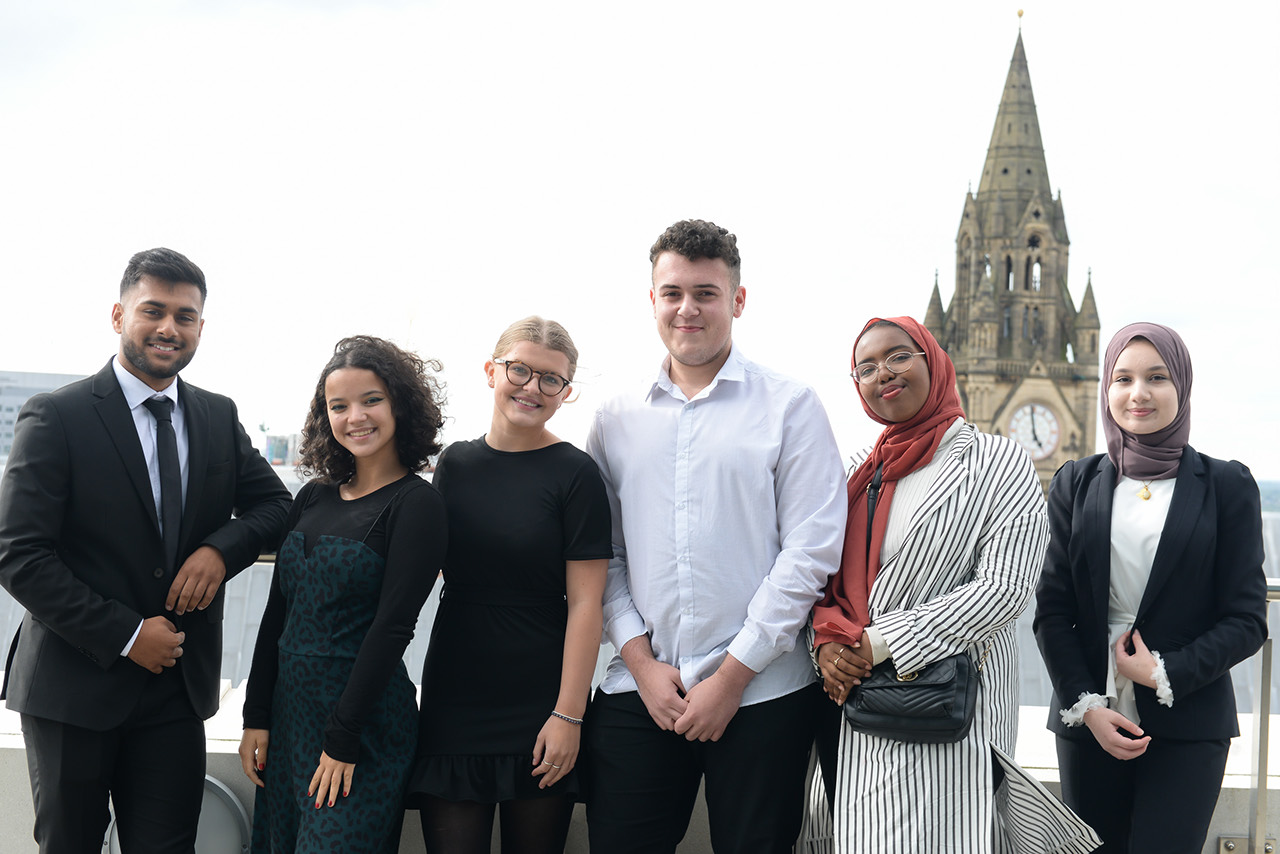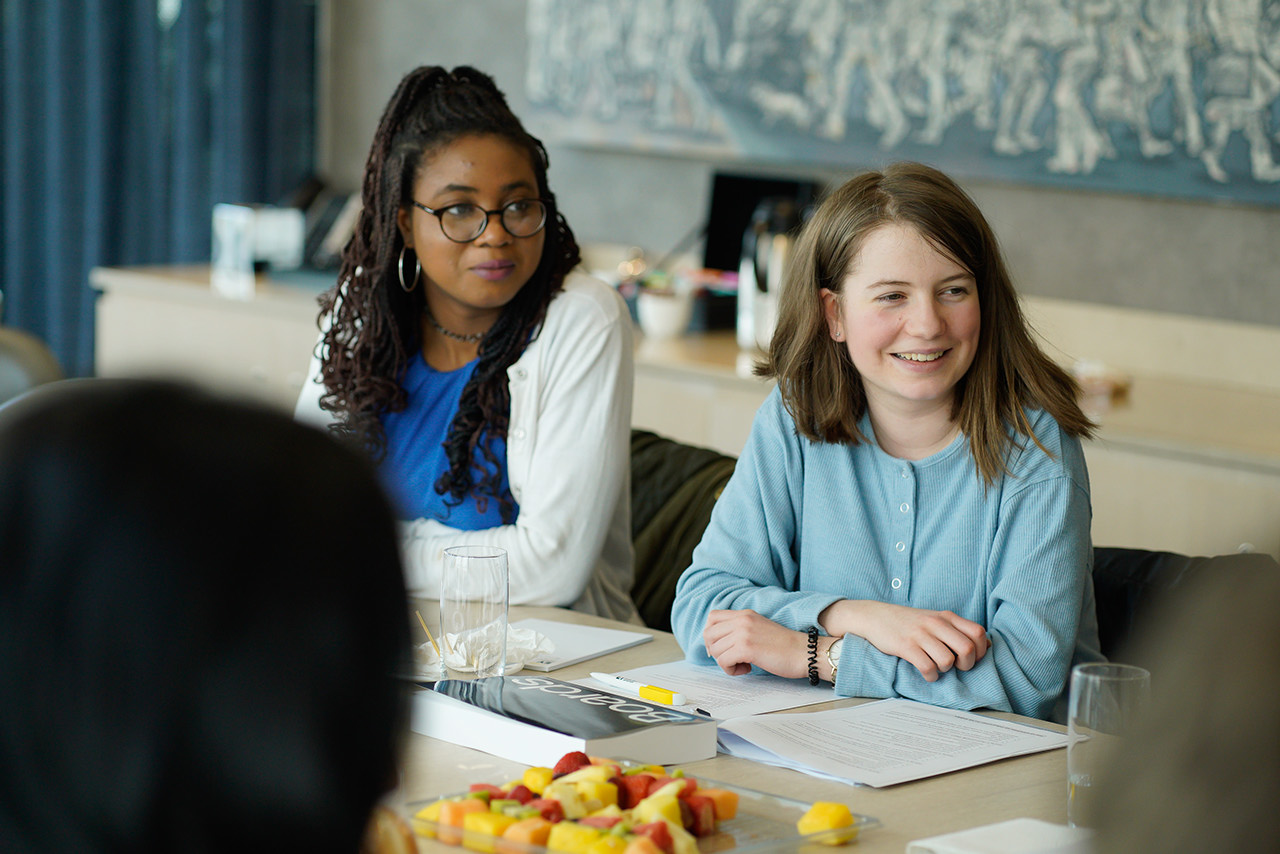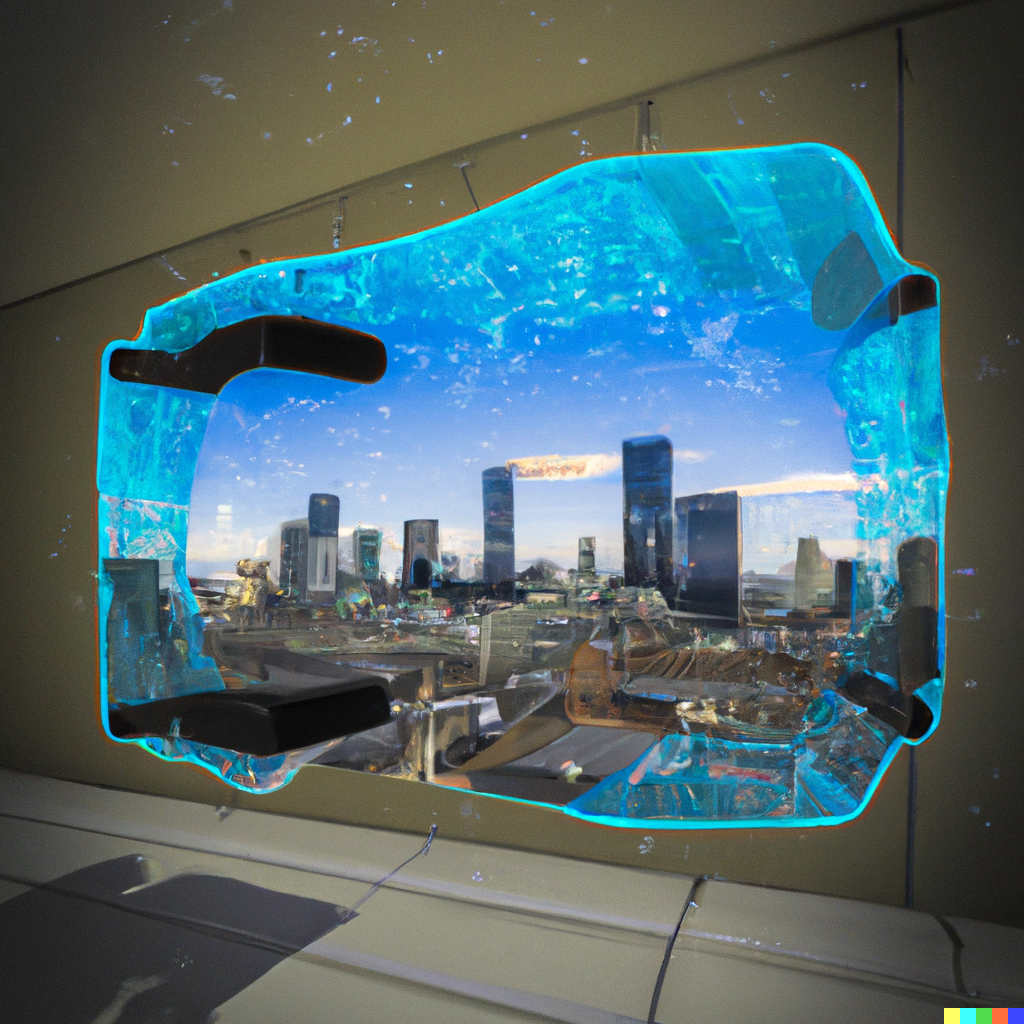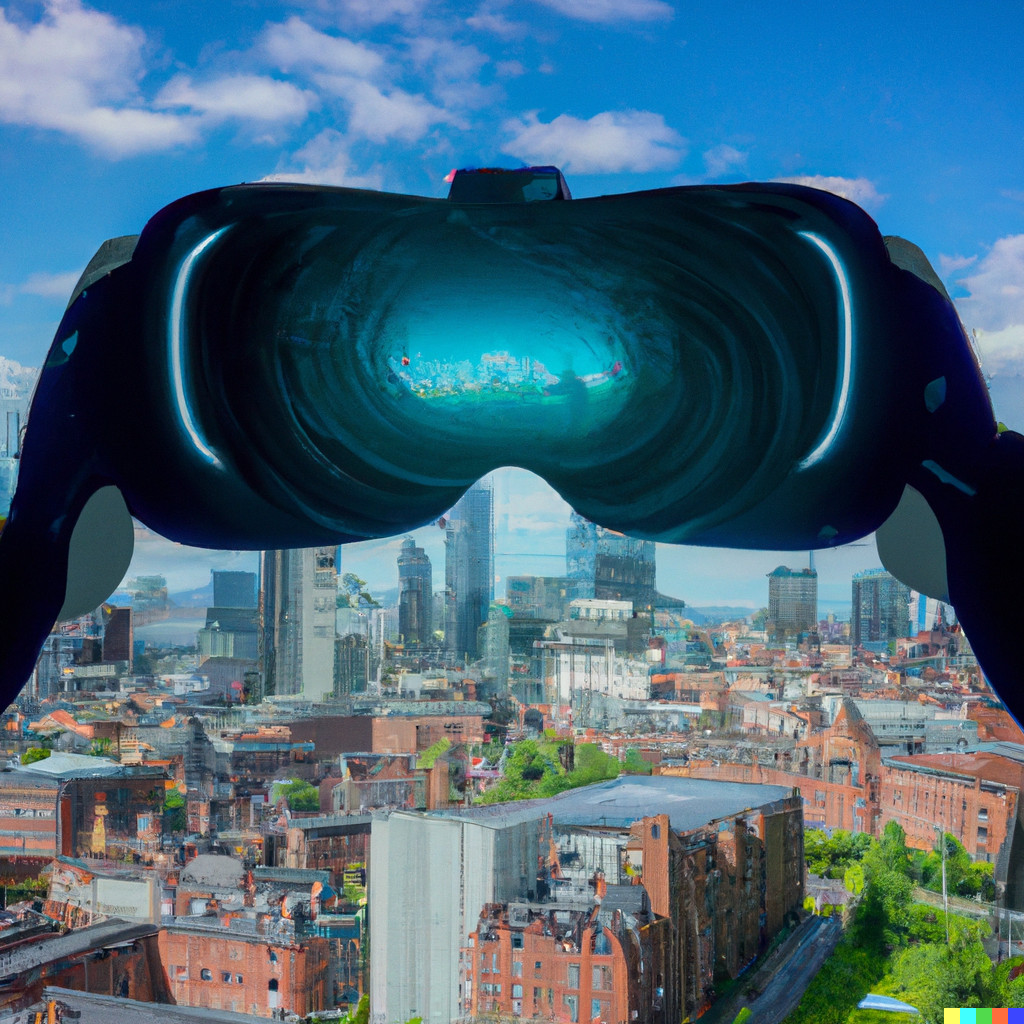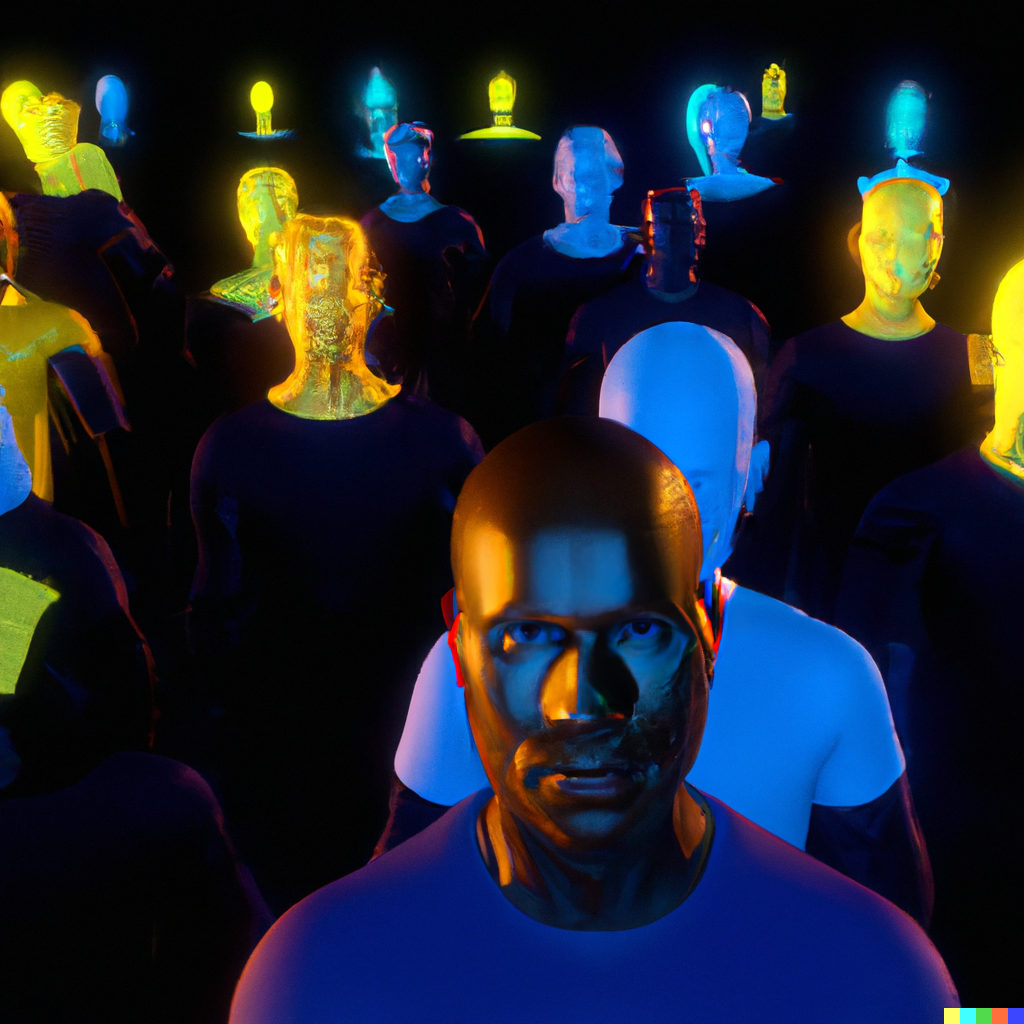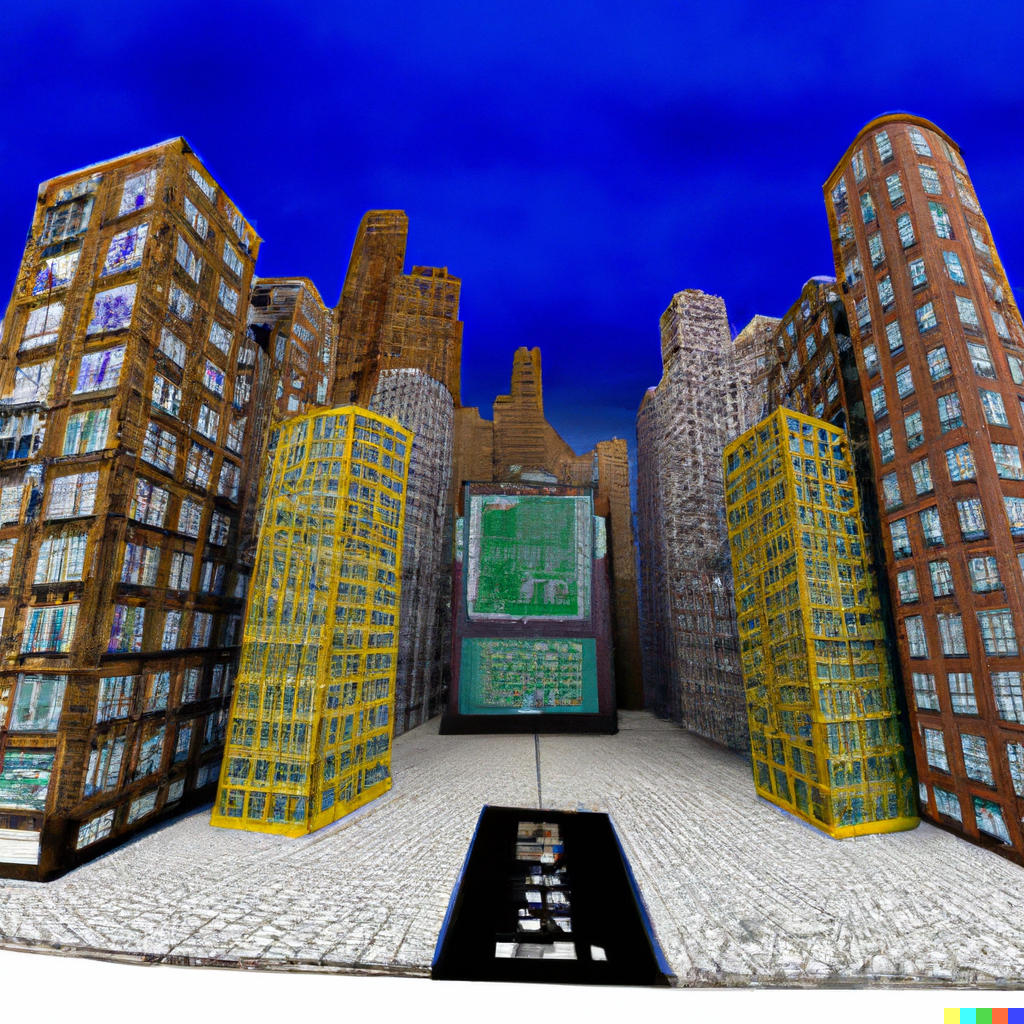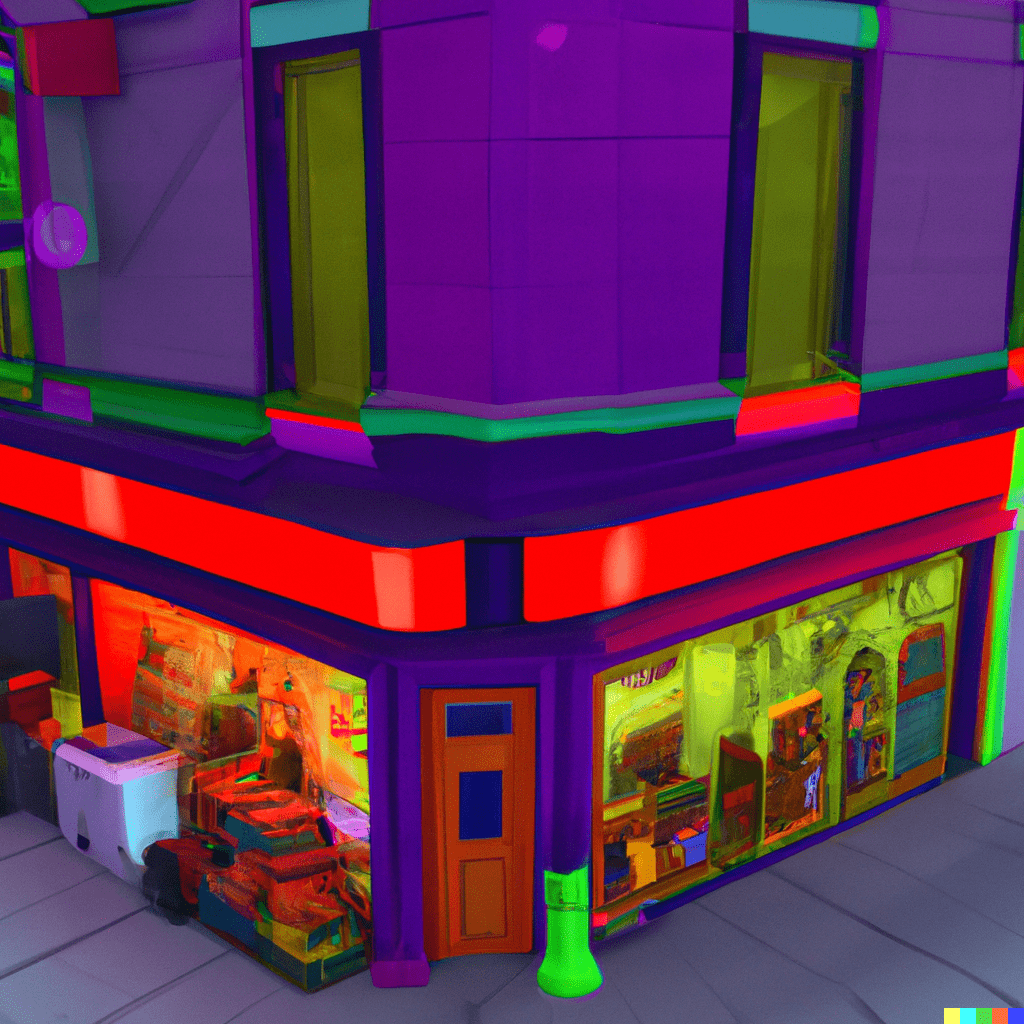The EY Foundation is a charitable company registered in England and Wales and Scotland with registered charity number 1157154 and SC045076. It is also a member firm of Ernst & Young Global Limited
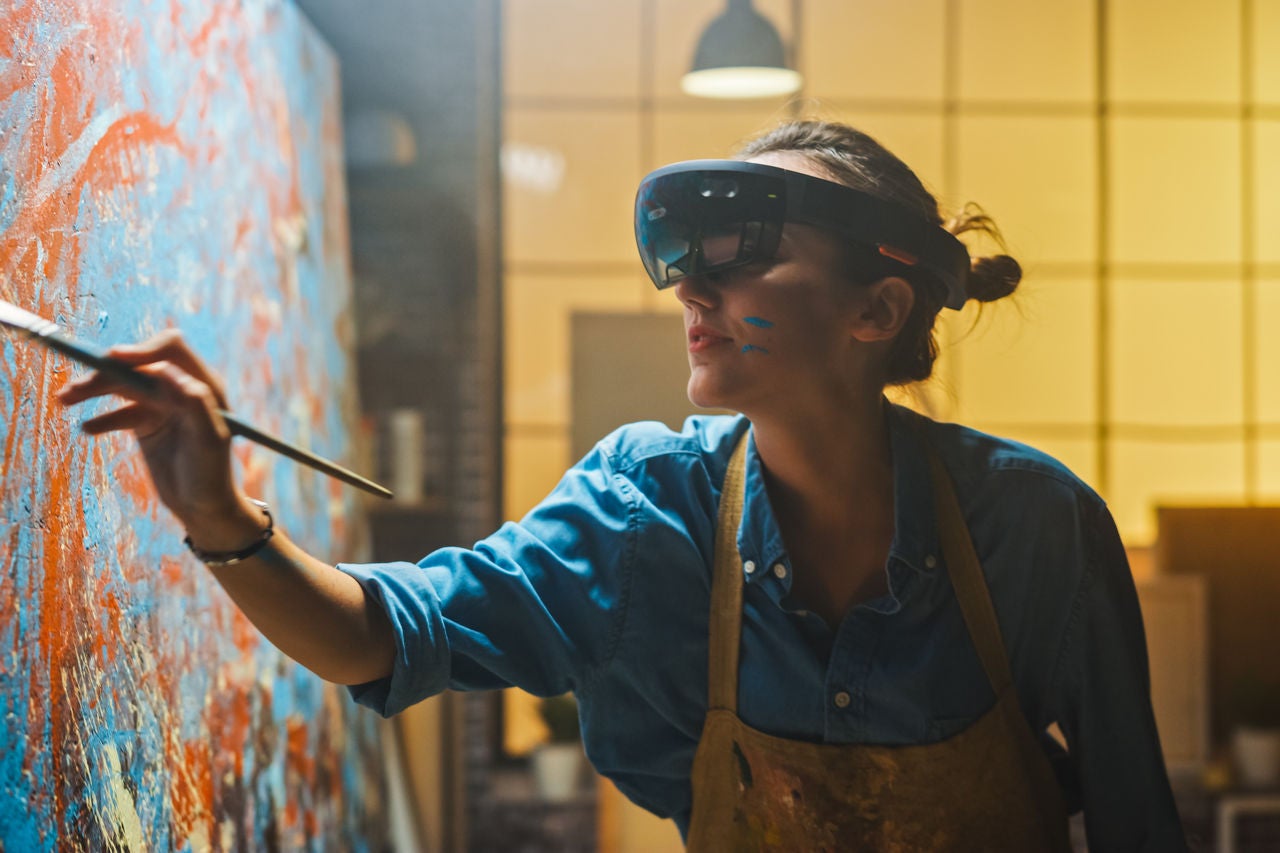
Alina Akbar, an award-winning visual artist from a low-income background, is documenting her journey into the metaverse exploring the opportunities and challenges from a social mobility perspective.
She is supporting her journey with her own research and a series of one-to-one meetings with Ofcom, the EY Metaverse Lab team in the USA and the School of Digital Arts (SODA) at Manchester Metropolitan University. The project builds on the 'human centered' artist in residence approach developed by the EY Metaverse Lab team in the USA, harnessing innovative thinking to help build an inclusive metaverse.
In the second phase of the project, Alina will run a series of workshops with young people from Greater Manchester to gather their insights, concluding with the creation of a bespoke piece of digital artwork to creatively communicate her findings. The artwork will be exhibited within Manchester and nationally.
Week 1
Working as a collaborator on EY Foundation’s Metaverse Artist project looking into the challenges and opportunities for social mobility in the Metaverse, I was most definitely interested in what this advancement in tech means for people who come from a similar path to me. However, as a working-class visual artist who works in a community orientated and collaborative way, I can admit I do not know much going into the project about the Metaverse. I have been speaking with friends and discussing what this space is from presumption, what could it become and how it feels like a bit of a threat to the way “we” do things and develop collaborative practices. Are they trying to turn us all into humans who don’t physically interact or leave our homes? Or is it genuinely going to bring ease and development to our day-to-day life?
At this point cost barriers feels like something which is self-explanatory, so I have been thinking about what it could mean to have to use systems designed by people who do not necessarily always know how we live, systems that don’t account for working class people and all the other barriers such as race and gender that communities also face. I have also been thinking about what this technology could do for systems that serve us such as community groups, allies and local businesses who all play a part in the social mobility of young people as that what is available to them on their doorsteps as a first point of contact.
It’s definitely a positive to see EY Foundation carrying out this project as it’s an opportunity to explore from the earlier stages what could make the working-class experience of the Metaverse a more beneficial one.
Alina Akbar
Week 2
After having a meeting to develop my knowledge on the Metaverse I have had a shift in my thought process that I will probably carry forward for the rest of this project. Instead of thinking of the Metaverse as a replacement to what we have today, I am now looking at it as an addition to everything we have with our current technology and online social interactions. Learning about the different elements I am still unclear about metaverse uses; however, it has sparked some thoughts about ownership especially when it comes to the blockchain and NFT’s. Thinking from the perspective of a visual artist who posts a lot of art online without any control over how it is shared or consumed and even used, I can already see the way in which these new technologies could begin to benefit my career and protect working class people who are not always informed.
I am still sceptical of whether this technology will advance at the pace everyone thinks it will.
Alina Akbar
Weeks 3 and 4
After being sceptical of whether this technology will advance worldwide at the pace anticipated, I have actually been able to see the advancement in such a short period of time, whilst starting to immerse myself into learning more about the Metaverse. Prior to this I was aware of AI and people around me using it for various job roles to enhance their productivity and make better use of their time, but from my last meeting up until now there has been a wide roll out of a snapchat AI bot which has literally placed this development in tech onto the devices of all young people who use the social media platform, sparking conversation and normalising their use of AI. It’s interesting to see how younger people will interact with these new forms of interaction available to them, as well as see it from the other side where it is less of a more fun exciting development but a serious shift in the way businesses could operate.
What I have been thinking of at this stage is that as a creative from a working-class background, I have always looked to those from similar backgrounds who have excelled and done ground-breaking things in creative fields but have remained within the “culture”. The playing field is definitely changing, in general with the internet and access to so much information, teaching ourselves entire careers from YouTube. There is also an advancement in people not gatekeeping information and making resources and tool kits available to working class people, to help them progress in careers and society. For example, the late Virgil Abloh leaving behind an entire website for young creative entrepreneurs. I think it could be interesting to see who will take things into the direction of the metaverse and develop more immersive experiences for people to access from all over the world, in fields that are not just corporate but creative industries which lack huge working-class workers yet are highly inspired by our way of life.
Within the following week I also connected with friends at Brightblack Productions who are creators of interactive, immersible, playable culture. We got chatting about where I'm at and my thoughts around the project and how I am also thinking of the economics, local community and my personal perspective on social mobility. Following on from this I also visited a VR exhibition at FACT Liverpool, a documentary VR experience into the stories of 80s acid house. It was really great to be able to see the possibilities within this technology and how storytelling can be moulded in a 3D space. This brought me to thinking a lot about spaces and the stories of belonging, the types of buildings we inhabit that are pillars of the local economy within our communities, and how these bring about the feeling of comfortability no matter where you are. Yet also act as cultural institutions of knowledge and power. There's often an assimilation process to bring people into a space of upward mobility. This is what I'm trying to challenge and bring in a unique perspective on how social mobility upward can happen whilst still holding onto the authenticity of oneself.
Alina Akbar
Weeks 5 and 6
The past few weeks have been quite action packed with a range of meetings and idea development. From pulling themes from my conversations with Danielle at EY Metaverse Lab around the thoughts I was having in previous weeks, to progressing to idea development stage. Thinking of local economies and young people and my own experiences - our first step or association to skills training and social mobility was often through pillars and foundations available within our own community. Youth clubs creating the space to be yourself and local shops creating a sense of belonging, acting as something much bigger than just a shop front. I've been thinking of how we can bring this sense of place and belonging to the metaverse as a first step towards tackling many of the issues that arise with access and beneficial usage of these technologies.
I also visited the EY Manchester office where I got to speak about why I was drawn to this project and how it has progressed in such a short time. Having a conversation with Matt, sharing my ideas and processes. Similarly, a conversation with Ofcom about how they could aid anything that I'm doing and how they are looking at regulations and strategy around a generation that is really immersed in gaming as an entry point to 3D spaces.
At this stage I'm ready to start pulling together all the themes, conversations, personal perspective and conclusions to create something to be executed as a creative output. Low code platforms and letting technology meet us where we are at, with the facilities available to us, are most likely going to aid me as someone who does not come from a background in 3D design or development. That said, I am keen to bring my skills as a storyteller to the forefront and explore in more depth how this can go on to be something which can translate to many people via a 3D space.
Alina Akbar
Weeks 7 and 8
Looking back over this project, my journey into the Metaverse began with asking, ‘what does social mobility look like for me?’. I wanted to explore how can I bring my personal thinking and artistic perspectives to this issue. Central to this is to challenge the common themes and ideas about social mobility that seem very rigid and surface level about people’s lived experiences and how they move through society.
This has led to the idea of creating a Metaverse ‘corner shop’, or a similar style community structure, using the foundation of a community in the physical world to create a place that promotes belonging, authenticity and provides something that you cannot find elsewhere. Please watch my video to find out more about this idea, which I will be working with Danielle in EY to build
Alina Akbar
